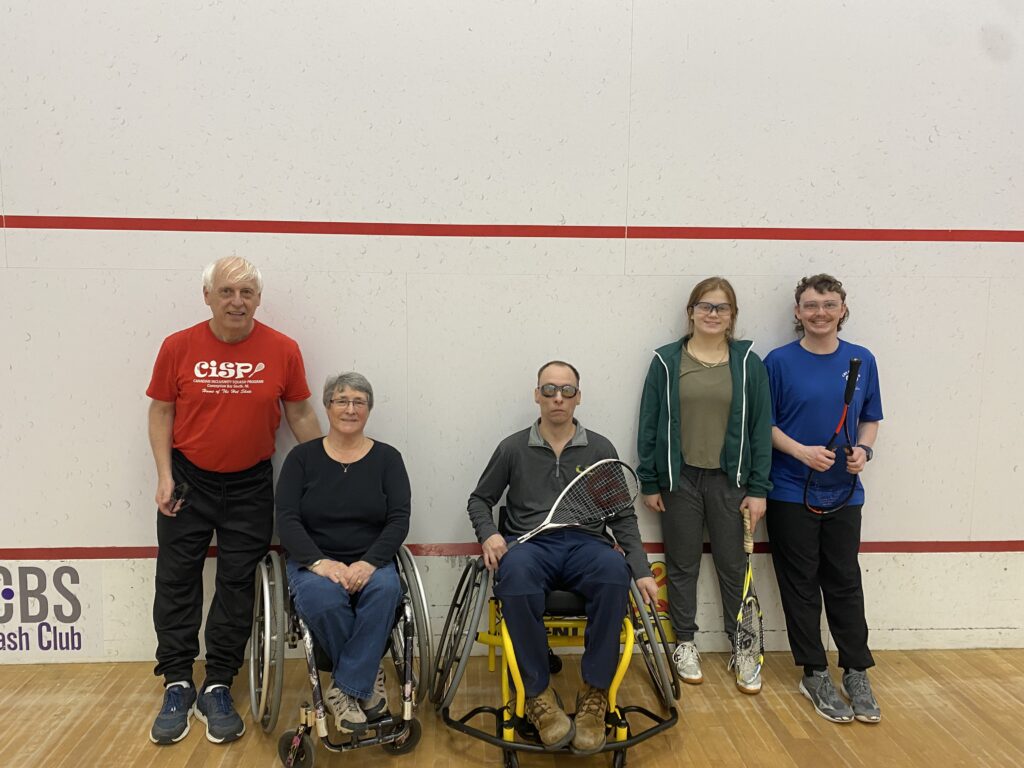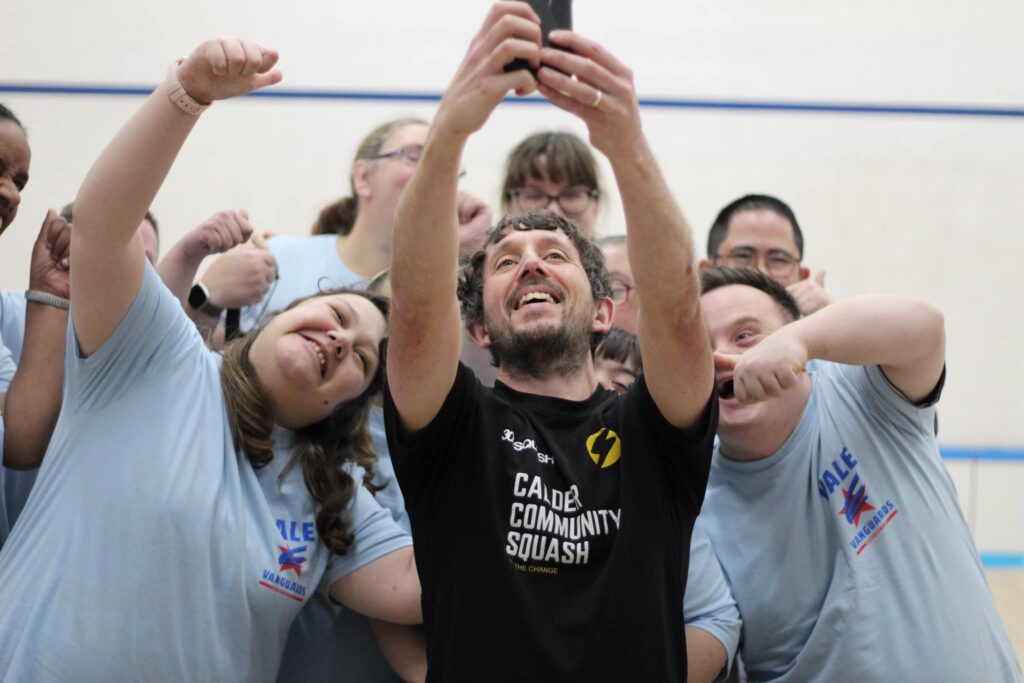
Squash can be accessible to everyone if we have the right mindset. Find out below, how clubs and communities are making changes to help those with mobility, neurodevelopmental and sensory disabilities participate in squash
Canadian Inclusivity Program
The first to be specifically designed for individuals with disabilities, this non-governmental organisation (NGO) runs three core programs. These Incorporate some simple adaptations that give everyone a chance to enjoy our sport.
Mobility Disabilities
Canadian Inclusivity Squash (CISP) has shown that mobility disabilities do not have to be a barrier to playing. Wheelchair squash is adapted by using bouncier junior squash balls, or Squash57 rackets and balls. This way, the play remains exciting and dynamic.
The program also provides specialist sports wheelchairs to the players and both their courts have wider entrances to ensure accessibility.
Neuro-developmental Disabilities
CISP has also developed specific coaching methods for various neurodevelopmental disabilities.
For players with autism, for example, who are more sensitive to noise, Eric (the head coach) takes extra care not to speak too loudly and hit the ball too hard. It only takes small changes to make everyone feel comfortable.
CISP also runs sessions for players with Down syndrome. Before they get on court though, Eric asks participants to “provide a doctor’s note confirming they are safe to participate”. This is because people with Down Syndrome often suffer from neck instability. Find out more in this article by the Squash Facilities Network
Visual Disabilities
Players with visual impairment also benefit from specific coaching methods. The coaches at CISP find that “physically guiding their body” in order to learn the swing technique is particularly useful.
Technology is also playing a big part though. The team has trialled a new squash ball that beeps continuously during a rally, allowing the players to locate it more easily.
By incorporating some of the methods that the Canadian Inclusivity Program utilize, you too can make inclusivity part of your club’s ethos. Find out more here.

Mixed Ability Squash
This partnership between England Squash and Calder Community Squash shows that an inclusive culture is everything.
The program encourages clubs up and down the UK to promote and run specific sessions for individuals with disabilities. This has created safe spaces that new players keep coming back to. Aron, the founder of Calder Community Squash, emphasizes enjoyment over technique and believes that running inclusive sessions is a great way of attracting new faces to clubs. There are now 25 Mixed Ability Sessions in the UK.
It was from this program that the first mixed ability squash match took place when the Ponte Pirates from Pontefract Squash Club hosted the Calder Crocs, from Old Crossleyans Squash Club in Halifax. It goes to show that new squash communities can flourish when they are given the chance. Find out more about these mixed ability sessions below.
How can you make your community more disability inclusive?
Mixed ability programs do not require specialist technology, but only the upskilling of your coaching team.
Rhiwbina Squash club in Cardiff, exemplifies the inclusive atmosphere that we believe every club can achieve. Running disability coaching sessions every Monday and Thursday as well as a weekly wheelchair squash night is bringing people on to a squash court who never thought they would have the opportunity to.
Clubs can promote the sessions they offer to local charities that already have a relationship with communities of people with disabilities. This is a way of establishing a base network of players. Making your club more inclusive does not always require a large amount of funding or resources but only the will to reach out and connect with the different communities that already exist.



